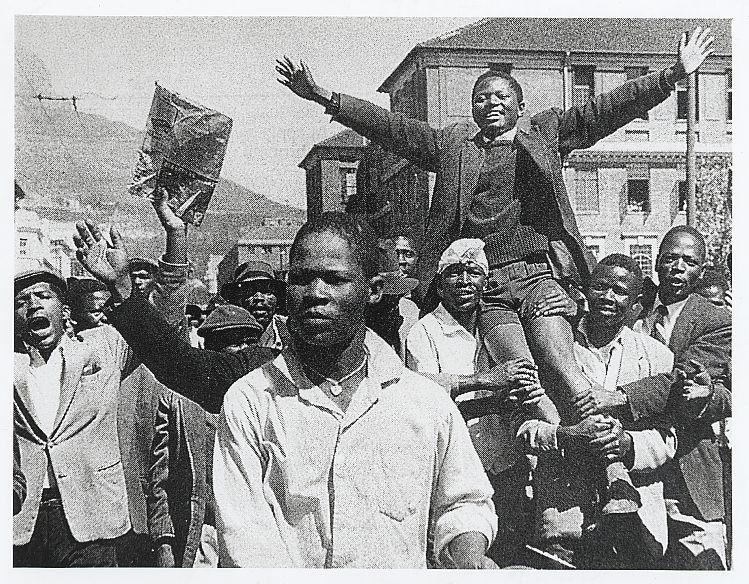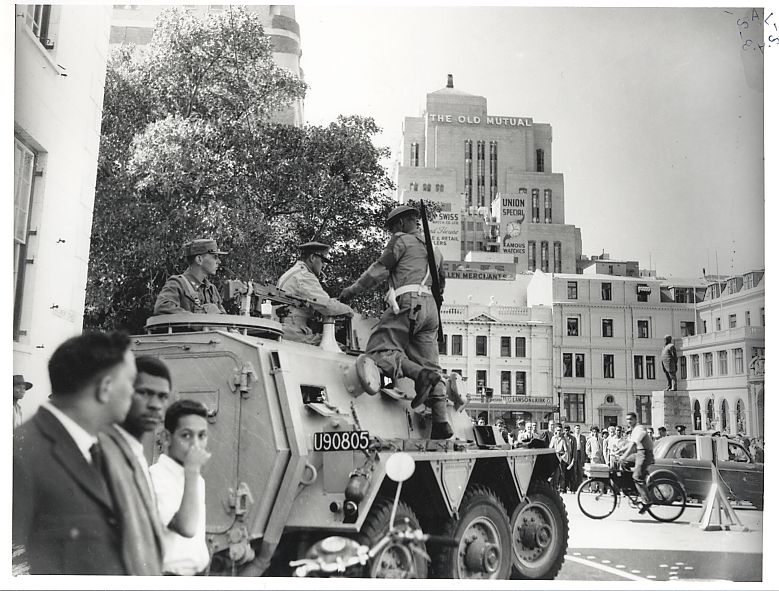Sharpeville Massacre
Images
Summary
The Sharpeville massacre was a turning point in South African history. On March 21, 1960, without warning, South African police at Sharpeville, an African township of Vereeninging, south of Johannesburg, shot into a crowd of about 5,000 unarmed anti-pass protesters, killing at least 69 people – many of them shot in the back – and wounding more than 200.This massacre created a crisis for the apartheid government, both inside the country and internationally. The government immediately declared a State of Emergency and banned political meetings. Within less than a month, it banned both the Pan Africanist Congress, which had organized the action in Sharpeville, and the African National Congress. After lengthy internal discussions, the ANC and PAC turned to armed struggle and went underground.
News of the massacre drew immediate international condemnation. The South African stock exchange sank, saved only by loans from a consortium of U.S. banks.
Web Images
Political Art: "SS - Sharpeville Massacre Tenth Anniversary"
From: Posters from the Melville J. Herskovits Library of African Studies of Northwestern University
[Go to source directly and leave this site]
From: Posters from the Melville J. Herskovits Library of African Studies of Northwestern University
[Go to source directly and leave this site]

Political Art: "Chase Manhattan - Partner in Apartheid"
From: African Activist Archive
[Go to source directly and leave this site]
From: African Activist Archive
[Go to source directly and leave this site]

Web Documents
Resource: "Sharpeville Massacre - 21 March 1960"
[more info]
[Go to source directly and leave this site]
[more info]
[Go to source directly and leave this site]

Magazine Article: "Sharpeville: March 21, 1960 As Seen by Petrus Tom", FOSATU Worker News
[more info]
[Go to source directly and leave this site]
[more info]
[Go to source directly and leave this site]

Report: "The Sharpeville Massacre: A Watershed in South Africa"
By The Rt. Reverend Ambrose Reeves
[more info]
[Go to source directly and leave this site]
By The Rt. Reverend Ambrose Reeves
[more info]
[Go to source directly and leave this site]

Journal Article: "Significance of Sharpeville Uprising", Ikwezi
[more info]
[Go to source directly and leave this site]
[more info]
[Go to source directly and leave this site]

Suggested Reading
From Protest to Challenge: a Documentary History of African Politics in South Africa 1882-1990
By Thomas Karis, Gwendolen Carter, Gail Gerhart
[more info]
By Thomas Karis, Gwendolen Carter, Gail Gerhart
[more info]




